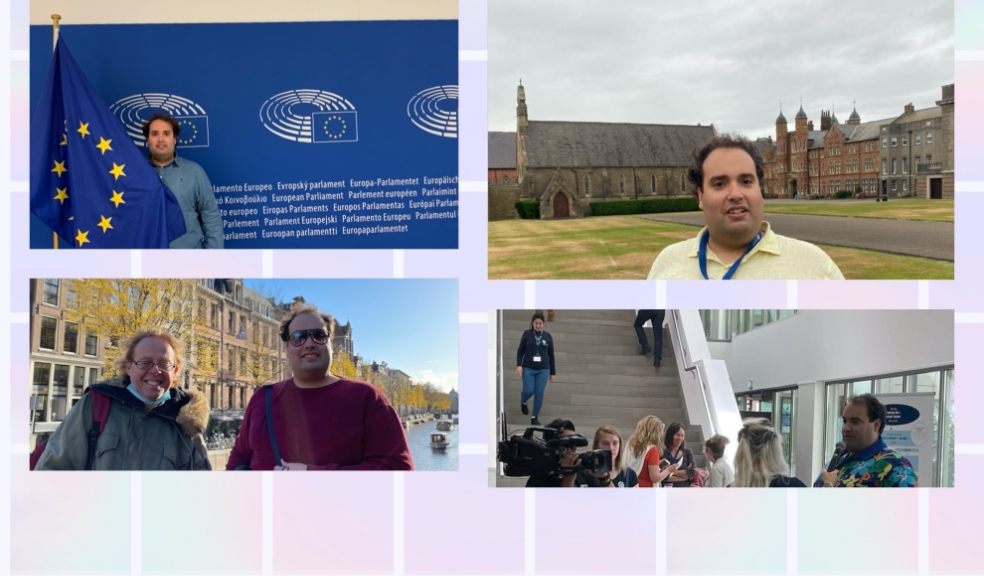
An English language teacher and EU Erasmus expert in the spotlight
Enrique Ruiz Cano is an English language teaching specialist who currently works for a state Primary school in Spain (CEIP Nuestra Senora de la Fuensanta from Beniajan in the Murcia region of south eastern Spain). He has also taught in a wide range of summer school in the UK up and down the country. What’s more, he has family links in Norfolk and Kent which he considers his second homes.
He set up a pioneering network of Primary schools in Devon both in Exeter and near Exeter which were successful when it came to gaining Erasmus+ funding from the European Union. This EU programme allowed plenty of children and staff to travel and study abroad in different European countries e.g. Latvia, Italy or Spain with great benefits for the institutions involved.
In fact, his first ever partnership of EU schools started in early 2014 when he was 23 years old, throughout a 2 week structured course in Exeter which included both training and a teaching and job-shadowing assignment in different Primary schools like Redhills Primary or Broadclyst Primary. Mrs Rosemary Manson who lives in Dawlish was the leader of that course and she always describes Mr Ruiz-Cano as a diligent university student and teaching professional.
Mr Ruiz-Cano has recently had a short interview as part of EU initiatives he’s trying to get off the ground here in the UK. What is more, he aims to make links with different schools in England for future cooperation as he’d also like to get some pupil exchanges up and running in Devon and possibly other counties in the UK. He feels extremely sorry about Brexit.
Interviewer: I was wondering if you’d be able to summarize the approach to English in your school…
ERC: We mainly use CLIL, which stands for Content and Language Integrated learning, when it comes to teaching the English language to Primary students. This enables us to integrate content from other curricula areas within our didactic units prioritising the children’s speaking skills. We also use a harder version of CLIL for teaching some school subjects like Science through English.
If the teacher is up to scratch methodological and linguistic wise, there does seem to be evidence that CLIL learners outperform those non-CLIL learners when it comes to the English language of course but also, content wise. In other words, the learning of the Science contents, in our case, is defiantly more meaningful despite using an additional language as the main instrument for communication and delivering lessons. However, this entails investing in training as you need to be on the ball and know how to approach the lessons using another language which is not the kids’ mother tongue.
Interviewer: What about the teaching of foreign languages in the UK? What’s your take on this aspect?
ERC: Well, as is widely acknowledged, the teaching of an additional language in UK schools is non-existent. I mean, theoretically, they do 30 minutes or an hour on a weekly basis but more often than not, the class teacher does everything and he/ she is not always qualified to teach another language apart from English.
Therefore, the kids don’t start learning a foreign language big time till they start secondary education in England.
It is worth mentioning that in Ireland or Wales, they’ve got a bilingual system cos they also learn their own language, Gaelic or Welsh or whatever. The UK and especially England should place more emphasis on getting the children to learn at least one additional language and that should be part of the curriculum. The school should be spot for choice and decide if Spanish, French, German, Portuguese, for example is the most relevant foreign language according to the catching area of the school or the profile of institution they would like to be. I reckon Brexit is not helping when it comes to foreign languages.
Interviewer: Do you believe that Brexit is having a negative bearing on English Education too?
ERC: Unfortunately yes, Brexit is bringing about no end of problems for British schools and universities. The UK has a double-whammy problem: Brexit and the economic turmoil caused by the invasion of Ukraine by the Russians. Many heads I know are up in arms about the lack of EU funding and the massive cut backs during the last few years some schools are suffering from. To make things even worse, there are so many opportunities children and adults in schools are missing out. That’s also applicable to Higher Education in the UK, as the new Turing scheme has been a mess so far.
I don’t think populism is a good idea for the UK or the EU, we’re definitely stronger together.
Interviewer: How actively involved is your present school in EU initiatives? You’ve actively involved with Erasmus, right?
ERC: Yep, very much so. We are currently involved in 4 different Erasmus+ projects, one of them called “Top Secret” with a UK school from Ystrad Mynach in Wales and others from the Netherlands, Denmark and France. I was one of the founders of that project together with my friend Yvonne Scherphof from the Netherlands who leads a programme called “Such Fun” and who is an English language teaching professional as well as an expert in methodology with relevant experience when teacher training in her country too. She’s also an awesome leader.
Additionally, we’ve got other projects where English is very present and we try to make the United Nations Sustainable Development Goals very salient in our daily teaching.
I’m extremely passionate about English, its culture and Erasmus+ yes, and I honestly think my school has been doing great so far and internationalization through the Erasmus+ study scheme has been a big success up to now in our school community and the other partner schools from other European countries.
Interviewer: What’s your next move within your professional career then? You might still be keen to work in the UK or state schools here in spite of Brexit?
ERC: Yep, I’d love to teach in the UK if need be and I will definitely continue working for some summer schools if I get the chance. I’ve been extremely lucky I’ve been snapped up so far… so We’ll see what the future will lay ahead from a professional point of view.
Working in Qatar where I’ve got some English acquaintances is also on the cards, at least for some time.
In addition, it goes without saying that working within EU projects is also a must and a priority as I do believe in EU initiatives within Education. I’m very passionate about the EU and the great benefits it brings about for the different nations at this moment in time where there are some common values and we respect each other’s differences.




















